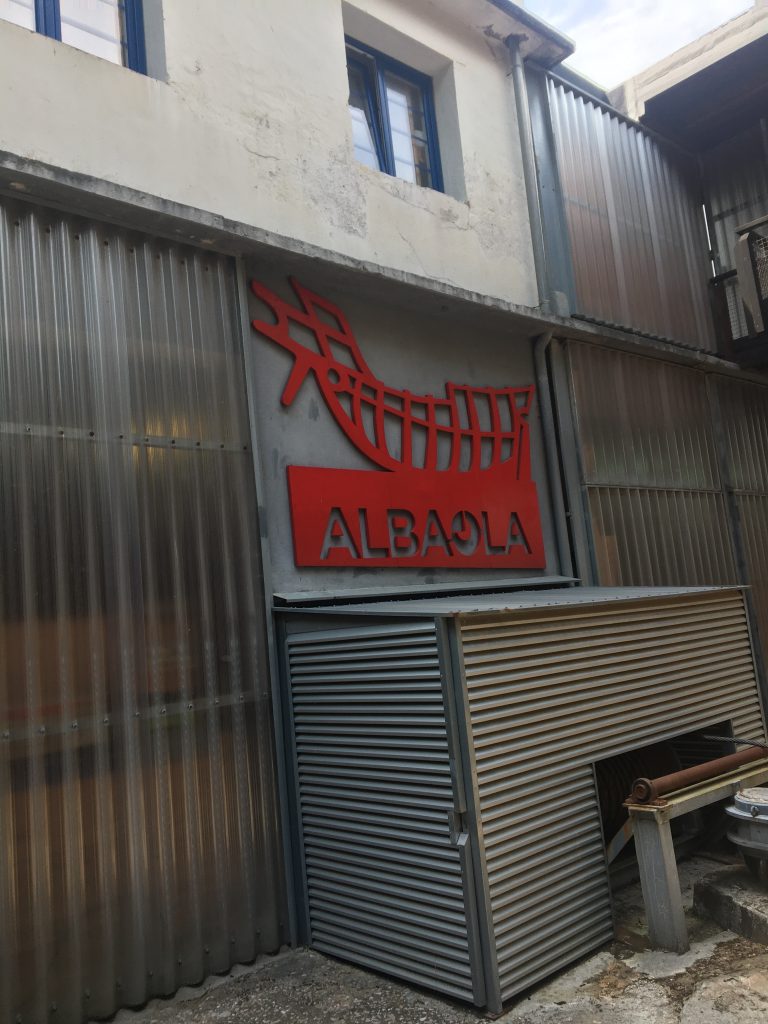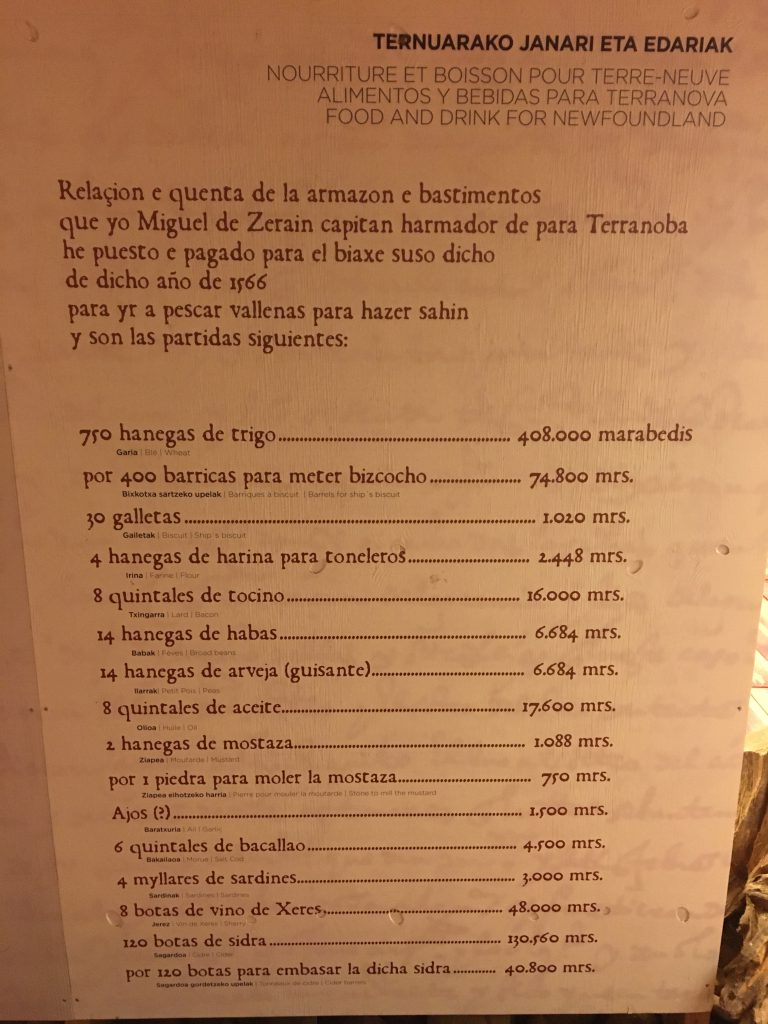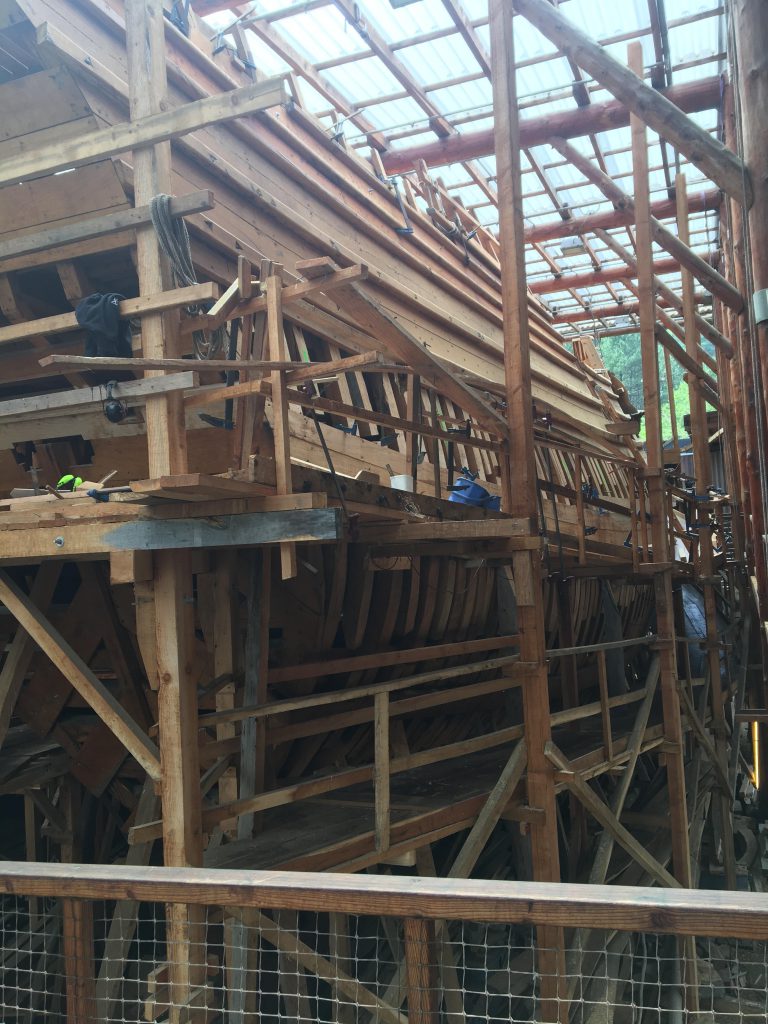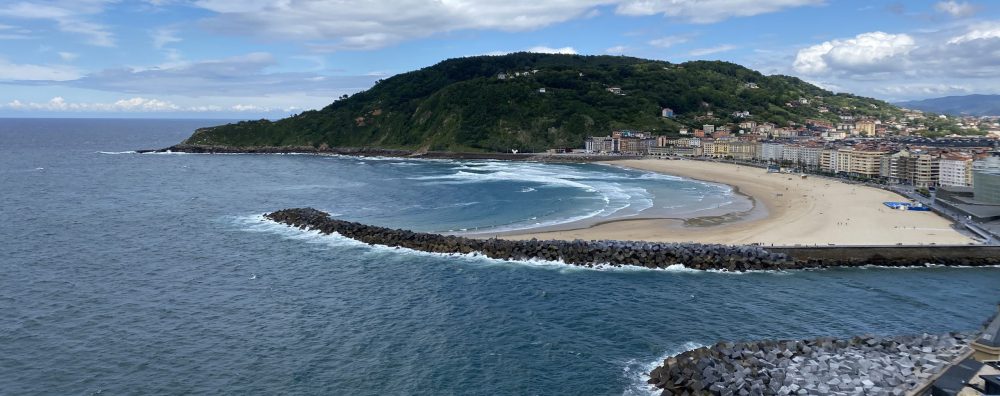By Scott Penfield
Friday afternoon’s excursion took us out of the city and to the verdant coastal town of Pasaia, where we visited Albaola, a shipbuilding museum and school that pays homage to the historical dominance of the Basques in maritime exploration and whaling. Located in a secluded inlet only accessible by boat or mountain trail, Albaola is centered upon a decade-long effort to perfectly recreate the San Juan, a 16th century Basque whaleship that was found sunken off the coast of Canada in the 1970s. There is also a shipbuilding school where students learn the techniques that powered the Basque country to a near-monopoly on the global whaling industry for centuries. Our group toured the museum, saw the current status of the San Juan, and were given a maritime knot-tying lesson by a Basque sailor.

The museum at Albaola contains a vast array of information about the Basque Country’s rich maritime heritage. Exhibits with details regarding shipbuilding technologies, whaling techniques, the lifestyles of explorers, and much more brought the time period to life. It is easy to see how this history is woven into modern Basque life, with the most ubiquitous example being bacalao (salted cod). This seemingly simple food was the staple of Basque ocean journeys, providing a protein source that would last for months at sea. To this day, almost every bar or restaurant in San Sebastian will serve bacalao in one form or another.

Of note: The average sailor would be allocated 3 liters of Basque cider per day
Even as some of the Age of Exploration cultural artifacts persist to this day, many of this unique heritage has been lost since the decline of Basque whaling post-18th century. This is a large part of Albaola’s founding mission: to maintain this vital part of Basque culture through their shipbuilding school. With eighteen students from all over the world currently studying the art and engineering behind Basque shipbuilding, the school is a thriving attempt to resurrect a mostly forgotten trade that, in its day, was the driving force behind the Basques’ ability to dominate the open seas. This resurrection is being manifested most clearly in the recreation of the San Juan whaling boat, a project that began in 2013.

The original San Juan was on a whaling expedition from the port of Pasaia and made it to Newfoundland, when the North Atlantic whale hunt was at its peak. Before returning to the Basque Country, however, the ship sank off the coast of Red Bay in Labrador in 1565. There it sat underwater for over 400 years, not found until a Canadian historian pieced together clues that led to its discovery in 1978. Because of the frigid temperatures, it is considered by archaeologists to be one of the most well-preserved shipwrecks ever found.
Albaola’s magnum opus gets its own building, set apart from the museum and the school. The goal of the project is as simple as it is daunting: to perfectly recreate the San Juan. This immense undertaking is made even more impressive by the fact that only original techniques and materials are being used: several tons of iron from Basque ore deposits, along with locally sourced oak wood, are the most crucial elements. Seven years into the project, the San Juan is close to complete, and is expected to set sail for Canada in roughly two years, where it will rest at the same location where the wreckage was found over forty years ago. The project is a collaboration between the Basque and Canadian Governments, as a tribute to the shared history that led the Basques to be the first Europeans to establish a permanent whaling colony in what is now Canada.


While difficult to appreciate the size in photos, this ship would have housed around 60 sailors on a transatlantic voyage over several months
Our time at Albaola was a unique opportunity to learn more about a part of Basque history that, while crucial at the time, is now often relegated to historical footnote several hundred years later. However, modern Basque culture is still strongly influenced in a variety of ways by this history. The spirit of the early explorers lives on here, and Albaola is giving that spirit a place to grow while sharing it with the rest of the world.
